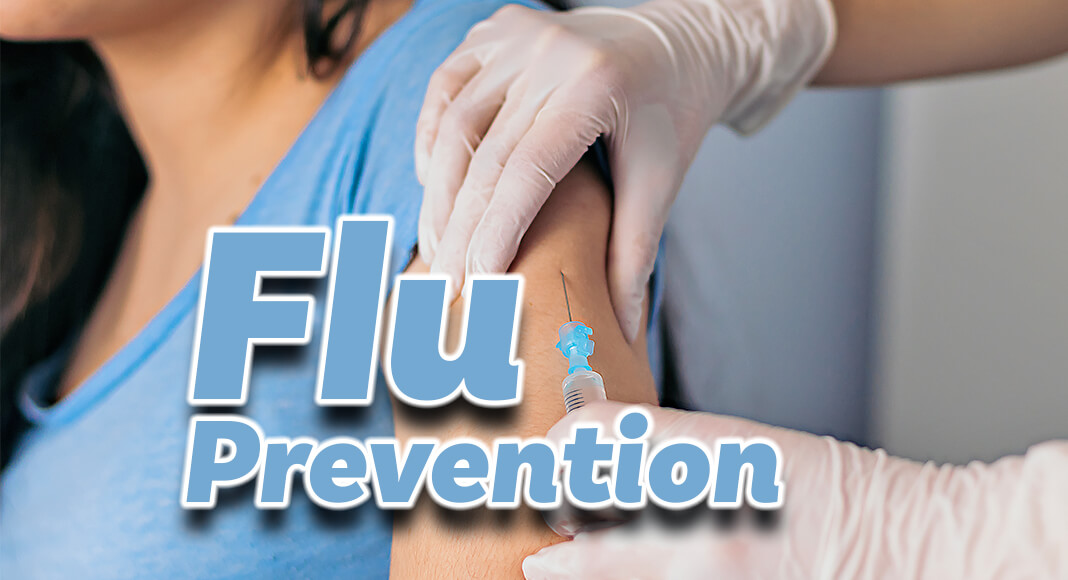
Mega Doctor News
Take time to get a flu vaccine.
- CDC recommends a yearly flu vaccine as the first and most important action in reducing your risk of flu and its potentially serious outcomes.
- Flu vaccines help to reduce the burden of flu illnesses, hospitalizations and deaths on the health care system each year. (Read more about flu vaccine benefits.)
- Flu vaccination also has been shown to reduce the severity of illness in people who get vaccinated but still get sick.
- For 2024-2025, all flu vaccines will be designed to protect against three influenza viruses (Visit Vaccine Virus Selection for this season’s vaccine composition.)
- Everyone 6 months and older should get an annual flu vaccine, ideally by the end of October but people should continue to get vaccinated as long as flu viruses pose a threat to their community.
- Vaccination of people at higher risk of developing serious flu complications is especially important to decrease their risk of severe flu illness.
- People at higher risk of serious flu complications include young children, pregnant people, people with certain chronic health conditions like asthma, diabetes or heart and lung disease, and people 65 years and older.
- Vaccination also is important for health care workers and other people who live with or care for people at higher risk of serious flu illness to keep from spreading flu to them. This is especially true for people who work in long-term care facilities, which are home to many of the people most vulnerable to flu.
- Children younger than 6 months are at higher risk of serious flu illness but are too young to be vaccinated. People who care for infants should be vaccinated instead.
Take everyday preventive actions to stop the spread of germs.
- Take other preventive actions in addition to vaccination that may help reduce the spread of viruses like flu.
- Avoid close contact with people who are sick.If you are sick, limit contact with others as much as possible to keep from infecting them. For flu, CDC recommends that people stay home, for at least 24 hours, until both are true: your symptoms are getting better overall, and you have not had fever (and are not using fever-reducing medication)*. More information is available at About Preventing Spread of Respiratory Viruses When You’re Sick. *More information about how long people are contagious with flu and what to do if you did not have a fever is available at Flu: What To Do If You Get Sick | CDC.After these two criteria are met, there are some additional precautions that can be taken to protect others from respiratory illness.These include taking steps for cleaner air and hygiene practices like cleaning frequently touched surfaces.
- More information is available about core and additional prevention strategies.
- Cover coughs and sneezes.
- Cover your nose and mouth with a tissue when you cough or sneeze. Throw the tissue in the trash after you use it.
- Wearing a mask is an additional prevention strategy that you can choose to further protect yourself and others. When worn by a person with an infection, masks reduce the spread of the virus to others. Masks can also protect wearers from breathing in infectious particles from people around them.
- Wash your hands often with soap and water. If soap and water are not available, use an alcohol-based hand rub.
- Avoid touching your eyes, nose, and mouth. Germs spread this way.
- You can improve air quality by bringing in fresh outside air, purifying indoor air, or gathering outdoors. Cleaner air can reduce the risk of exposure to viruses.
Take flu antiviral drugs if your doctor prescribes them.
- If you are sick with flu, antiviral drugs can be used to treat your illness.
- Antiviral drugs are different from antibiotics. They are prescription medicines (pills, liquid or an inhaled powder) and are not available over-the-counter.
- Flu antiviral drugs can make flu illness milder and shorten the time you are sick. They may also prevent serious flu complications. For people at higher risk of serious flu illness [308 KB, 2 Pages], treatment with an antiviral drug can mean the difference between having a milder illness and having a very serious illness that could result in a hospital stay.
- Studies show that flu antiviral drugs work best for treatment when they are started within 2 days of getting sick, but starting them later can still be helpful, especially if the sick person is at higher risk of severe flu illness or is very sick from flu.
- If you are at higher risk of severe flu illness and get flu symptoms, call your health care provider early so you can be treated with flu antivirals if needed. Follow your doctor’s instructions for taking this drug.
Flu symptoms include fever, cough, sore throat, runny or stuffy nose, body aches, headache, chills and fatigue. Some people also may have vomiting and diarrhea. People may be infected with influenza virus and have respiratory symptoms without a fever. Visit CDC’s website to find out what to do if you get sick with flu. Learn about some of the similarities and differences between flu and COVID-19, and the difference between flu and the common cold.









